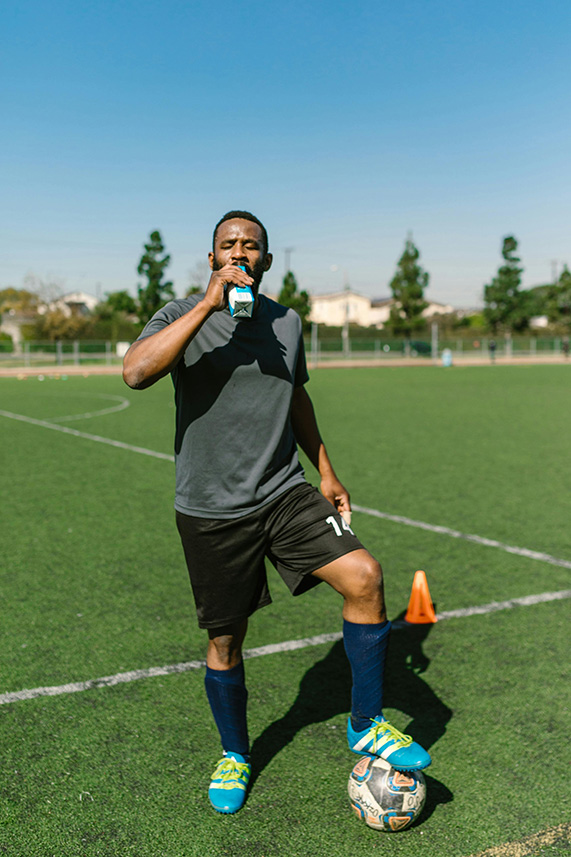
Reflect on the season that’s just finished

This is also a valuable time for reflection. Ask yourself: What are you proud of from this season? What skills have you improved? What challenges did you face, and how did you respond to them? What feedback did you receive from coaches or teammates? Writing down your thoughts can help you gain clarity and highlight areas you want to focus on in the next phase of your development. Reflection isn’t just about what went wrong, it’s just as important to notice what went well.
Set meaningful goals
Once you’ve taken time to reflect, start thinking about where you want to go next. Long-term goals give you direction. For example, you might want to become a more confident player, earn a starting spot on your team, or improve your game intelligence and decision making.
But long-term goals on their own can feel overwhelming. That’s why it’s important to break them down into short-term, achievable, and controllable steps. These are the daily or weekly actions you can take to build towards your bigger vision.
For instance:
• If your long-term goal is to become a more confident player, a short-term goal might be to take a leadership role in one training session each week or speak up with encouragement during drills.
• If your aim is to improve fitness, a short-term goal could be to complete two strength or cardio sessions per week throughout the off-season.
• If you want more game time next season, you might commit to attending every pre-season session, reviewing video of your performances, or working on one specific technical skill twice a week.

Short-term goals should focus on what you can control. Rather than setting a goal like “score more goals,” focus on “take three shots on target per game” or “practice finishing drills twice a week.” This gives you a sense of ownership, keeps you motivated, and makes progress feel more manageable.
Looking ahead with purpose
The off-season isn’t just a break. It’s a chance to reset and prepare yourself mentally and physically for the challenges ahead. Whether you’re just starting your football journey or competing at a higher level, now is the time to take ownership of your development. Set goals that matter to you, reflect honestly on your growth, and take practical steps to improve.
If you’d like support with goal setting, confidence, or getting your mindset right for pre-season, feel free to get in touch. Sport psychology can help you approach the new season with focus, clarity, and belief in what you’re capable of achieving.

Reach your goals
My aim is to help others reach their goals, by recognising and working through any challenges that are limiting them from achieving their potential.
Code of Conduct
I work within the ethical guidelines of the CASES Code of Conduct and our work together will be kept confidential unless otherwise requested.

